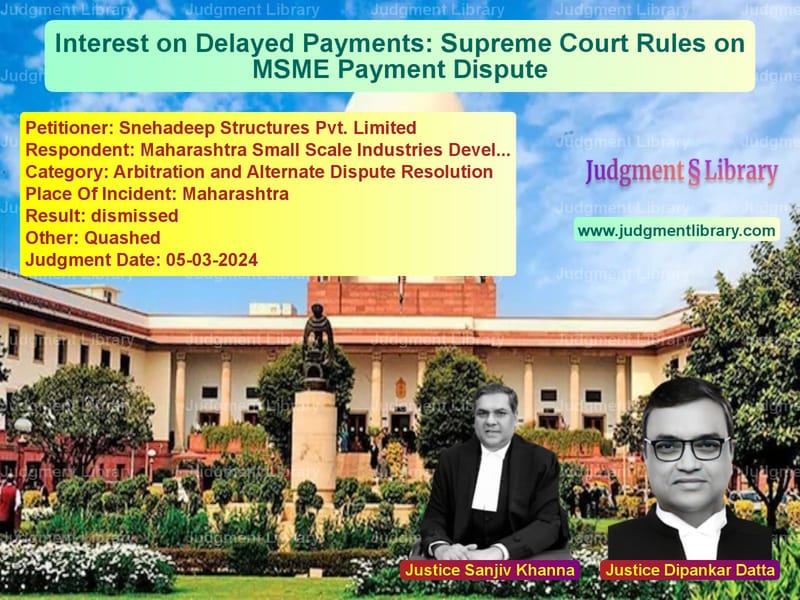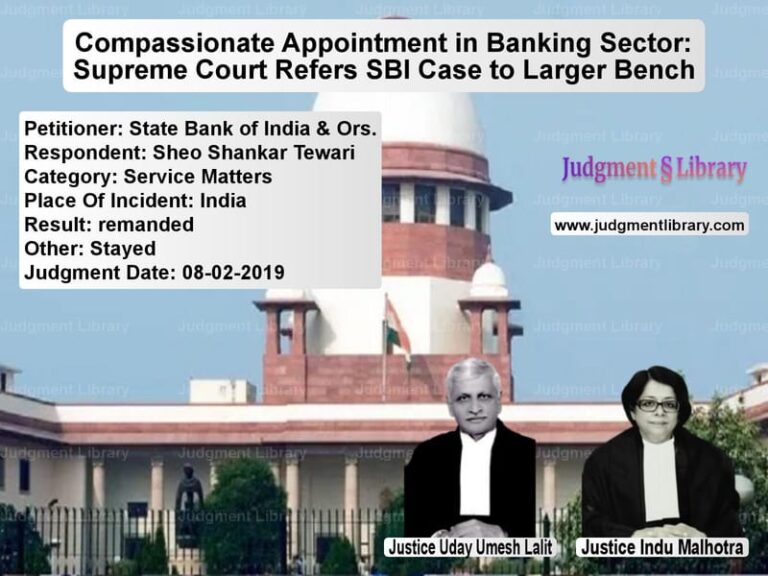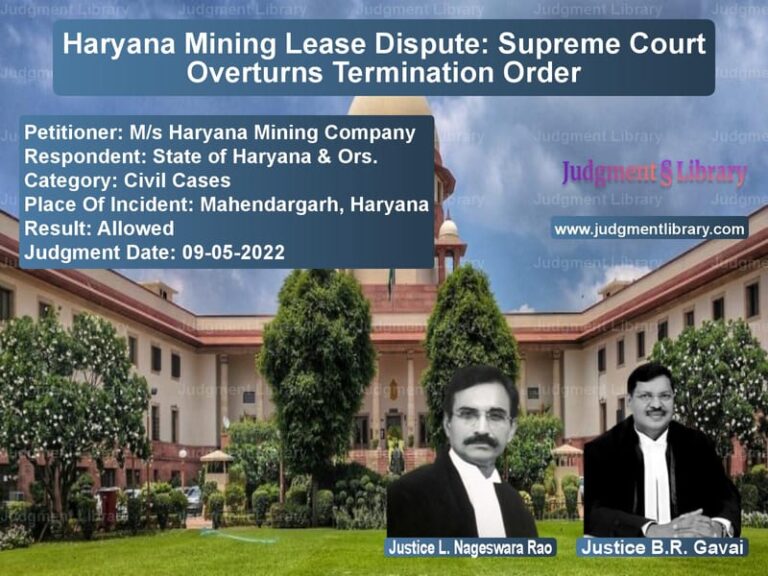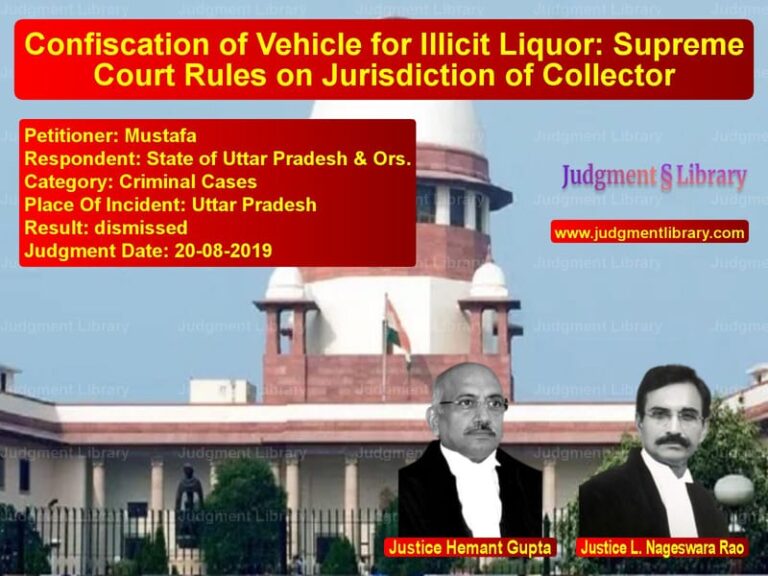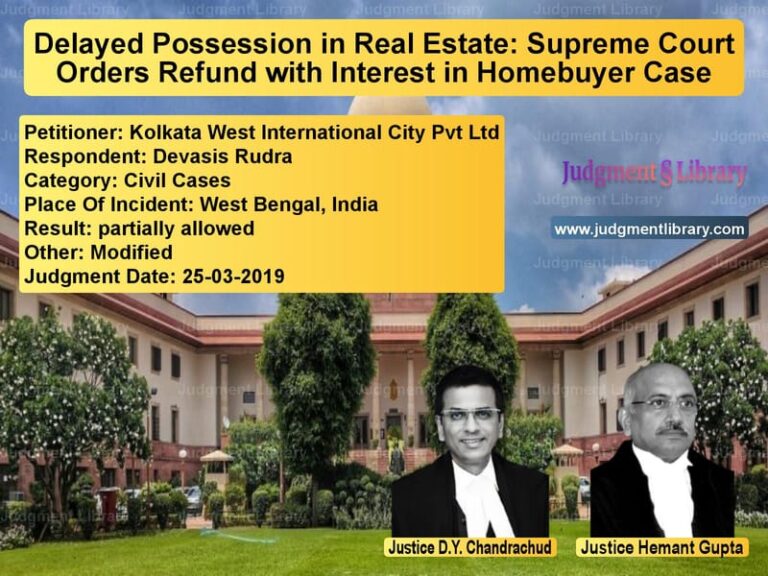Interest on Delayed Payments: Supreme Court Rules on MSME Payment Dispute
The Supreme Court of India has ruled in the case of Snehadeep Structures Pvt. Limited vs. Maharashtra Small Scale Industries Development Corporation Ltd., addressing key issues related to delayed payments in business transactions. The judgment clarifies the applicability of the Interest on Delayed Payments to Small Scale and Ancillary Industrial Undertakings Act, 1993 (1993 Act) and provides guidance on interest calculation in such disputes.
Background of the Case
The dispute arose from a supply/purchase order dated March 30, 1995, issued by the Maharashtra Small Scale Industries Development Corporation Ltd. (MSSIDCL) to Snehadeep Structures Pvt. Limited (SSPL). The contract stipulated that MSSIDCL would make payments to SSPL only after the delivered goods were accepted by the Maharashtra State Electricity Board (MSEB) and payment was received from them.
The key issues in the case were:
- Whether MSSIDCL was liable to pay interest on delayed payments under Sections 3 to 5 of the 1993 Act.
- Whether the proviso to Section 3 of the Act, which restricts the payment period to a maximum of 120 days, applied to contracts executed before the amendment.
- Whether compound interest on interest could be claimed.
Legal Provisions Considered
The Court examined the following provisions of the 1993 Act:
- Section 3: Mandates that buyers must make payments for goods or services by the agreed date, which cannot exceed 120 days.
- Section 4: Requires buyers to pay interest at 1.5 times the Prime Lending Rate of the State Bank of India for delayed payments.
- Section 5: States that interest must be compounded monthly.
Arguments by the Appellant (SSPL)
SSPL contended that:
- MSSIDCL had delayed payments beyond the agreed period, making them liable for interest under the 1993 Act.
- The proviso to Section 3, which mandates payment within 120 days, applied retroactively to all contracts, including those executed before the amendment.
- As per Section 5, compound interest should be applied on unpaid interest.
Arguments by the Respondent (MSSIDCL)
MSSIDCL argued that:
- The contractual clause stated that payments would only be made after MSEB accepted the goods and made payments to MSSIDCL.
- The proviso to Section 3, which sets a 120-day payment limit, was introduced in 1998 and should not apply retroactively to a 1995 contract.
- The arbitrator incorrectly awarded compound interest on interest, which was not justified.
Supreme Court’s Observations and Judgment
1. Applicability of the Proviso to Section 3
The Court ruled that the proviso to Section 3, which imposes a 120-day limit on payment timelines, does not apply to contracts executed before its enactment in 1998. It held:
“The contractual rights of the parties cannot be retrospectively modified. The proviso to Section 3 applies prospectively to agreements executed after 10.08.1998.”
2. Calculation of Interest Under Section 4
The Court determined that the liability to pay interest arises only after 120 days from the date of acceptance or deemed acceptance. It clarified:
“Interest becomes payable from the expiry of the stipulated period in the contract, or if no such period is specified, from the expiry of 120 days from acceptance.”
3. Compound Interest Under Section 5
The Court found that the arbitrator awarded interest on the unpaid interest amount, which was not permissible. It stated:
“Interest on the principal amount is payable under the 1993 Act, but compound interest on unpaid interest is not contemplated.”
4. Restitution and Execution of Payments
The Court noted that MSSIDCL had already made certain payments amounting to over Rs. 1.30 crores and held:
“MSSIDCL may move an application under Section 144 of the CPC for restitution or execution, as appropriate.”
5. Final Ruling
The Supreme Court dismissed SSPL’s appeal, stating:
“The appeal is dismissed, and the arbitral award is set aside. However, MSSIDCL may proceed with restitution proceedings if necessary.”
Implications of the Judgment
This ruling has significant implications for businesses and payment disputes:
- Clarifies contractual obligations: The judgment affirms that amendments to payment laws cannot apply retroactively.
- Limits retrospective application of the 1993 Act: Businesses cannot demand interest for periods before the law was amended.
- Restricts compound interest claims: Interest on unpaid interest cannot be claimed.
- Provides relief to buyers: Buyers cannot be penalized with excessive interest if payment timelines are contractually defined.
This decision ensures a balanced approach to delayed payments, protecting both suppliers and buyers from unfair financial burdens.
Petitioner Name: Snehadeep Structures Pvt. Limited.Respondent Name: Maharashtra Small Scale Industries Development Corporation Ltd..Judgment By: Justice Sanjiv Khanna, Justice Dipankar Datta.Place Of Incident: Maharashtra.Judgment Date: 05-03-2024.
Don’t miss out on the full details! Download the complete judgment in PDF format below and gain valuable insights instantly!
Download Judgment: snehadeep-structures-vs-maharashtra-small-sc-supreme-court-of-india-judgment-dated-05-03-2024.pdf
Directly Download Judgment: Directly download this Judgment
See all petitions in Arbitration Awards
See all petitions in Dispute Resolution Mechanisms
See all petitions in Commercial Arbitration
See all petitions in Enforcement of Awards
See all petitions in Institutional Arbitration
See all petitions in Judgment by Sanjiv Khanna
See all petitions in Judgment by Dipankar Datta
See all petitions in dismissed
See all petitions in Quashed
See all petitions in supreme court of India judgments March 2024
See all petitions in 2024 judgments
See all posts in Arbitration and Alternate Dispute Resolution Category
See all allowed petitions in Arbitration and Alternate Dispute Resolution Category
See all Dismissed petitions in Arbitration and Alternate Dispute Resolution Category
See all partially allowed petitions in Arbitration and Alternate Dispute Resolution Category

